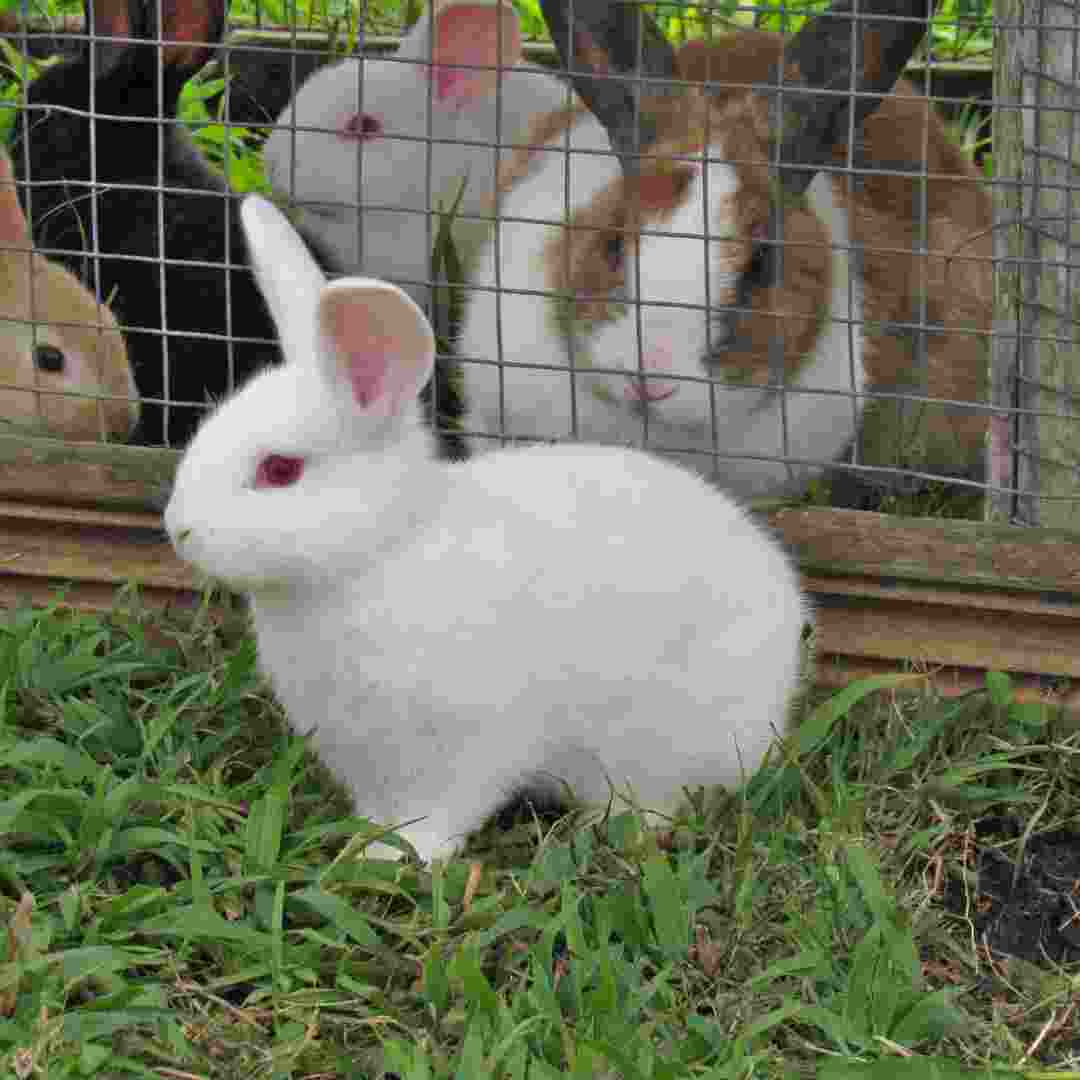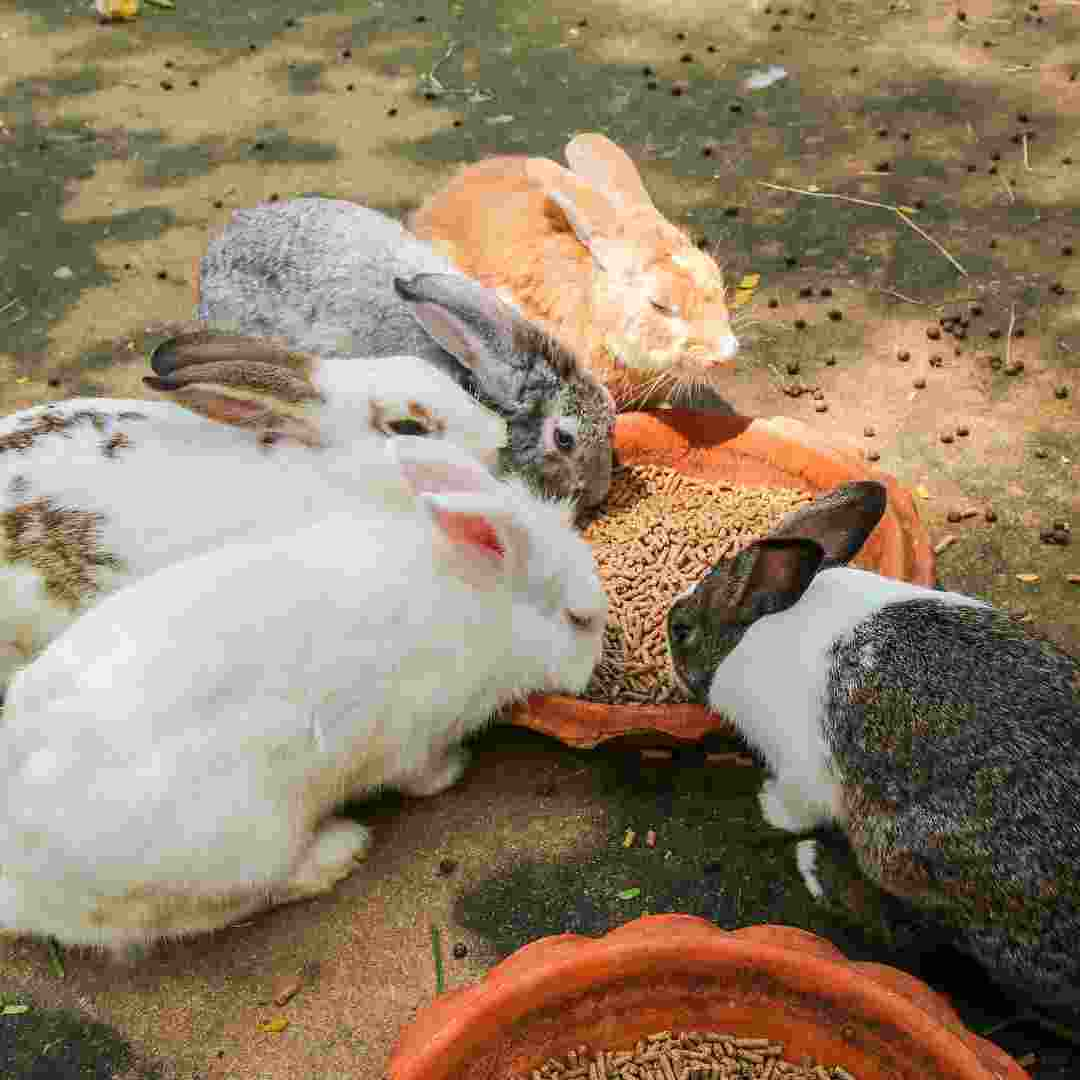Contents Table
Introduction
Selecting Rabbit Breeds for Your Business
Understanding Rabbit Care and Husbandry
Rabbit Business Marketing to Potential Customers
Tips for Rabbit Breeding Facility Setup
Rabbit Business Plan and Budget Creation
Q&A
Conclusion
Introduction
Starting a rabbit business can be lucrative. Rabbits are becoming popular pets, and rabbit-related products and services are in demand. You can start a successful rabbit business by breeding and selling rabbits, boarding rabbits, or making rabbit-related products. This book covers everything from market research to business setup. With knowledge and preparation, you may start a rabbit business that brings you joy and money.
Selecting Rabbit Breeds for Your Business
Starting a rabbit business can be lucrative. However, choosing the correct rabbit breeds for your business is crucial. Your business type and goals will determine your breeds.
Consider size, temperament, and health when choosing rabbit breeds for your business. Smaller breeds are excellent for petting zoos and kids' activities, whereas larger breeds produce meat. Breed temperament is also essential. Some breeds are calmer and easier to handle, while others are more energetic and need more attention. Finally, breed health matters. Research breeds before choosing one for your business because some are more susceptible to certain ailments.
Breed cost should be considered along with size, temperament, and health. Before buying, examine the breed's cost.
Finally, breed availability matters. Before choosing a breed, check its availability. Some are harder to find.
You may choose the best rabbit breeds for your business by considering size, temperament, health, pricing, and availability. The appropriate breeds can make your business successful and profitable.
Understanding Rabbit Care and Husbandry
Rabbit husbandry is essential for pet rabbits. Rabbits are gregarious animals that need lots of care to stay healthy. Understanding rabbit care and husbandry basics can help you give your pet the ideal habitat.
The first stage in rabbit care is giving a safe and comfortable home. This should include a clean, spacious cage or hutch. For comfort, the cage should have a litter box and bedding.
Healthy rabbits need a balanced diet. Hay, fresh veggies, and a few pellets are needed. Always give your rabbit fresh water and monitor their food intake to guarantee optimum nourishment.
For health, rabbits need daily exercise. This includes giving them toys, letting them explore, and giving them a safe place to run and play.
To maintain their fur and nails, rabbits need frequent grooming. Brush their fur, clip their nails, and clean their ears.
Finally, your rabbit needs frequent vet visits. Regular checkups, vaccines, and parasite control are needed. Watch for symptoms of disease or injury in your rabbit and seek medical care if needed.
Following these basic recommendations will keep your rabbit healthy and happy. Rabbits can live long and healthy lives with proper care.
Rabbit Business Marketing to Potential Customers
1. Create a good Website: Every business needs a good website, including rabbit businesses. Your website should be easy to use and feature all the required information about your business, such as rabbit types, pricing, and contact information.
2. Use Social Media: Social media can reach potential customers. Post about your business on Facebook, Twitter, and Instagram. Post rabbit images, new arrival updates, and communicate with fans.
3. Attend Local Events: Attending local events puts your business in front of potential customers. Set up a rabbit booth at local pet festivals. To attract customers, give discounts or freebies.
4. Advertise in Local magazines: Local magazines are another wonderful technique to reach customers. Find pet-related magazines and advertise in them. Make sure your ad stands out and has all the relevant business facts.
5. Network with Other Pet Businesses: Networking with other pet businesses helps you reach new clients. Contact local pet companies to collaborate on events or promotions. This will expand your audience and customer base.
These suggestions will help you market your rabbit business and grow your consumer base.
Tips for Rabbit Breeding Facility Setup
1. Choose a Location: A rabbit breeding facility needs a safe and secure location. Ensure the bunnies are safe from predators and other animals.
2. Prepare the area: After choosing a location, prepare the bunnies' area. Clean and clear the space. Give rabbits lots of hay or straw to nest in.
3. Provide Adequate home: Rabbits need safe, pleasant home. Make sure rabbit cages are big enough and have plenty of hiding spots.
4. Feed rabbits a balanced diet to keep healthy. Feed rabbits a variety of fresh veggies, hay, and pellets to provide nutrition.
5. Monitor the Rabbits: Healthy and happy rabbits must be monitored. Check for disease or injury and treat it.
6. cleanliness: Breeding rabbits requires good cleanliness. Clean cages and provide bedding regularly.
7. Keep Records: Rabbit health and breeding records are crucial. This will help you monitor rabbit progress and provide the best care.
Rabbit Business Plan and Budget Creation
Planning and budgeting for a rabbit business is crucial to its success. A business plan and budget can assist you determine the resources needed to start and run the business and its risks and rewards. This post explains how to write a rabbit business plan and budget.
Start with Market Research
Before generating a business plan and budget, research the rabbit product market. This can help you assess product demand and competitiveness. Market research will assist you find product suppliers and distributors.
2. Set Goals
Setting rabbit company goals after market research is crucial. These goals should be reasonable and feasible, with short- and long-term objectives. Set goals to focus your efforts and ensure success.
Step 3: Plan Your Business
After setting goals, start a business strategy. A business plan should comprise an executive summary, business description, market analysis, competitive analysis, marketing plan, operations plan, and finance plan. Each section should be detailed and describe the business and its possibilities.
Step 4: Budget
Create a budget after creating a company strategy. A budget should estimate startup and operating expenditures and possible returns. Being realistic when setting a budget can help you discover venture risks and rewards.
Step 5: Track Progress
After creating a company plan and budget, track your success. This will help you spot issues and opportunities and alter your plan and budget as needed.
Planning and budgeting for a rabbit business is crucial to its success. Following the stages above, you can build a detailed plan and budget to determine the resources you need to start and run the firm, as well as its risks and rewards.

Q&A
1. How do you start a rabbit business?
A: Research the industry, write a business plan, get licences and permits, choose a location, buy supplies and rabbits, start a breeding programme, and market your rabbit business.
2. What kind of rabbits to breed?
A: Your market and business dictate the rabbits you breed. Consider the size, colour, temperament, and local demand for the rabbits you intend to produce.
3. How much does rabbit company startup cost?
The size and scope of a rabbit business determine its startup cost. Rabbits, cages, feed, bedding, and licencing and permit fees are costs.
4. Marketing my rabbit business?
You can market your rabbit business online, on social media, in local newspapers, and by word of mouth. Attend local events and shows to market your business.
5. What are rabbit business legalities?
A: Business licences, zoning permits, and other licences may be required depending on your area. Animal welfare laws may apply. Check with your local government for local requirements.
Conclusion
Starting a rabbit business can be lucrative. Success involves careful planning, research, and persistence. Consider shelter, feed, veterinary care, and rabbit market potential. Legal and regulatory aspects of running a business must also be considered. Successful rabbit businesses require preparation and dedication.
